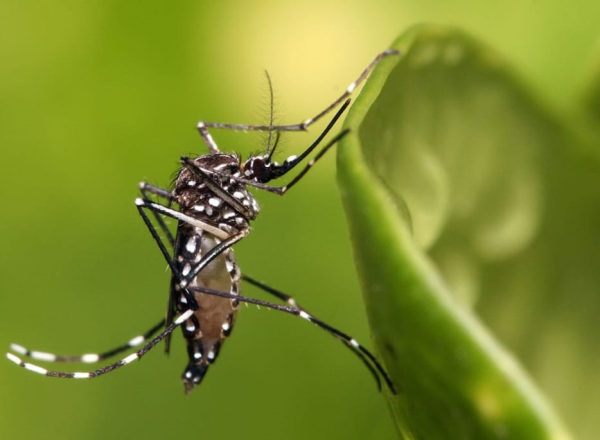KPL
Laos has recorded 16,458 cases of dengue fever so far in 2024, with 10 related deaths, according to the Centre of Information and Education for Health. These numbers reflect a significant decrease compared to the same period last year—when 29,032 cases and 17 deaths were reported.

(KPL) Laos has recorded 16,458 cases of dengue fever so far in 2024, with 10 related deaths, according to the Centre of Information and Education for Health. These numbers reflect a significant decrease compared to the same period last year—when 29,032 cases and 17 deaths were reported.
Despite being in the rainy season, which typically sees a spike in dengue cases, the number of reported cases in Laos continues to decline. Vientiane has reported the highest number of cases at 4,669, followed by Sekong, Luang Prabang, and Luang Namtha provinces.
Experts emphasize the need for a "One Health" approach to address dengue fever. This multidisciplinary strategy connects human, animal, and environmental health, urging collaboration among doctors, public health professionals, media, and local communities to prevent the spread of the virus.
Dr. Mayfong Mayxay, Vice-Rector and Professor of Tropical Medicine and Infectious Diseases at the University of Health Sciences, Lao PDR, stressed the importance of preventive measures.
"Dengue fever is a serious disease, but it is preventable. We must encourage people to adopt anti-dengue practices such as properly disposing of waste, eliminating standing water, keeping living areas clean, and using mosquito repellents," said Dr. Mayfong.

Like many Southeast Asian countries, Laos continues to face a significant burden from dengue fever. The virus, which is transmitted by mosquitoes, can cause symptoms ranging from mild fever to severe illness that may require hospitalization. In some cases, it can be fatal. In 2023, the Lao Ministry of Health reported approximately 35,000 dengue cases.
Dengue cases have been reported in unusually high numbers during the dry season this year, outside the typical peak of the rainy season between June and August. Climate change and rapid urbanization are contributing to the shifting patterns of the disease, raising concerns that dengue may become a year-round threat in Laos.
Climate change, increased and unplanned urban population growth, increasing travel, and the lack of an effective treatment, mean that instead of large outbreaks occurring every 3-4 years, we are now experiencing outbreaks almost annually.
As the number of cases rises globally—2024 is on track to become the worst year on record for dengue, with over 10 million cases reported across 176 countries—the economic and social impacts are increasingly felt.
Dengue fever disrupts communities as children miss school, employees miss work, businesses lose revenue, and healthcare systems come under strain. In addition, tourism and foreign investment are affected, with travelers avoiding regions experiencing outbreaks. For instance, a 2019 dengue outbreak in Thailand resulted in nearly two billion US dollars in lost tourism revenue.
Efforts to tackle dengue in Laos are underway, with support from the One Health initiative and other partners. Measures include improving clinical management, strengthening surveillance systems, and prioritizing vector control strategies. One Health has also hosted workshops for the media to raise awareness of the critical actions needed to prevent dengue transmission.
Dengue is no longer just a health sector issue—it is a societal priority. Public health experts urge the government to maintain dengue as a standing agenda item at provincial and district levels, ensuring village chiefs lead cleanup campaigns to eliminate mosquito breeding grounds. Sustainable, year-round mosquito control efforts are essential, as reactive measures such as spraying or cleanup once outbreaks occur are often ineffective.
# ONE HEALTH
KPL